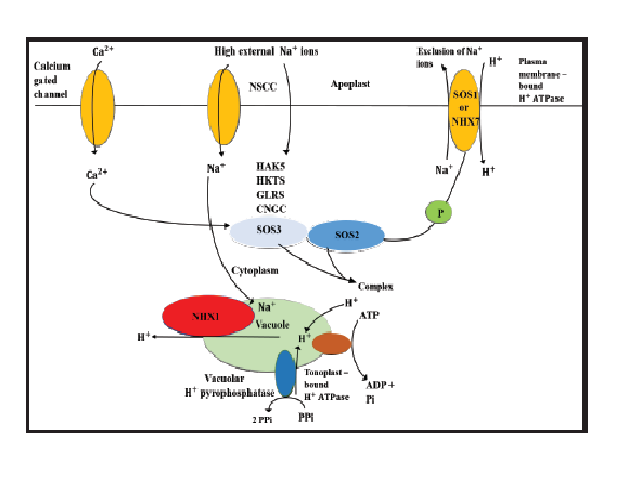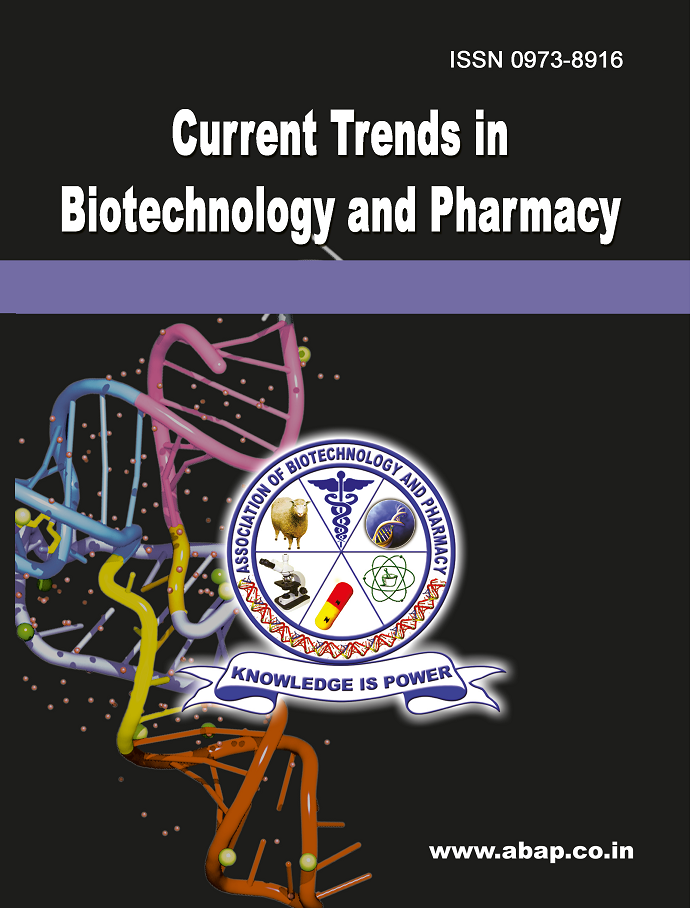Discerning the Dynamics of Sodium Transport in Plants Crucial for Developing Crops Resilient to Salt Stress
DOI:
https://doi.org/10.5530/ctbp.2023.3.34Abstract
This review focuses on sodium (Na+) transport in plants which is a complex process. Understanding about the genes that are impli-cated in Na+ transport is of prime importance since their overexpression can lead to trans-genic crop plants that tolerate high levels of salt stress conditions. Movement of Na+ from the soil into the roots is accomplished by non-selec-tive cation channels (NSCCs) besides high af-finity potassium transporters (HKTs). Its egress takes place at the membrane level by salt overly sensitive pathway (SOS), which is well charac-terized genetically. Information about the genes associated with tissue specific expressions for Na+ sequestration into the vacuoles is largely obscure, but is being unravelled slowly. Such a comprehensive understanding about the Na+ movement from the soil to the root, its loading into xylem, long-distance transport to the leaf blade, and compartmentalization into the vacu-ole in a tissue-specific manner appears crucial for developing climate-resilient crop plants in fu-ture.



